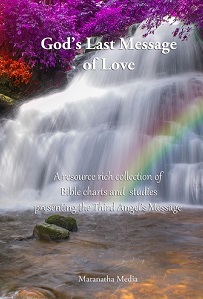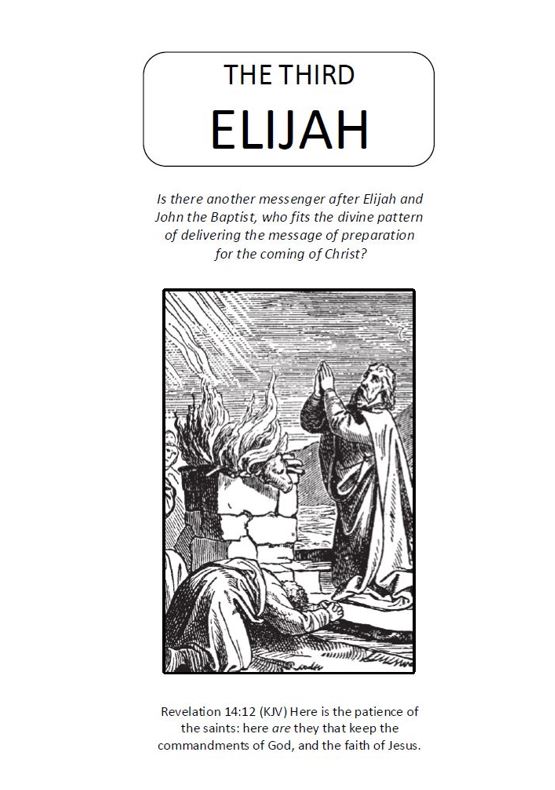I Can't Trust a Spiritualised Word
In this blog, I will share my thoughts about the dangers of spiritualising God's word, how destructive this path is, and how important Miller's Rules of Bible Interpretation are.
Once you step away from rule 11 of Miller's Rules of Bible Interpretation and begin spiritualising parts of the Bible, that could certainly be understood literally, you place yourself in a tough spot. If you don't have a set guideline on how to discern figurative from literal verses, anything of the mind's choosing might not be literal.
First of all, in denying the Sonship of Christ, a mountain of verses are thrown out the door. From here we can throw out many other things. How about six literal days of creation? Many verses gone there. The worldwide flood? Again, many verses there (in the New Testament too - Heb 11:7, 1Pet 3:20, 2Pet 2:5). Creation itself? Oh dear.
One I find particularly disturbing is the belief that we can't have victory over sin. It spiritualises so many verses in the Bible. Jesus says:
Matthew 5:48: Be ye therefore perfect, even as your Father which is in heaven is perfect.
If I can't have victory over sin or I can only get better, but not perfect, at resisting sin, then either I can't make it to heaven, or Jesus didn't mean what He said. The Bible also says, if I ask believing I will receive (Matt 7:11, Matt 21:22, Joh 16:24, 1Joh 3:22); if I don't believe in victory over sin, how can I know these verses are literal? Maybe I can't receive by just asking and believing.
Once you step off the rules of interpretation, you start sliding down a hill. You start questioning more and more whether the Bible means what it says, and start to throw out more and more God given doctrine. You can morph the Bible any which way for your own purposes, just the like the Pharisees did (see the first few chapters of The Desire of Ages). Eventually so much of the Bible will have spiritualised away that you'll wonder why you need it at all. Your spiritual life is never stationary, it's always going one way or the other. Ellen White said this:
Those who are engaged in proclaiming the third angel's message are searching the Scriptures upon the same plan that Father Miller adopted. In the little book entitled "Views of the Prophecies and Prophetic Chronology," Father Miller gives the following simple but intelligent and important rules for Bible study and interpretation: {RH November 25, 1884, par. 23}
"1. Every word must have its proper bearing on the subject presented in the Bible; 2. All Scripture is necessary, and may be understood by diligent application and study; 3. Nothing revealed in Scripture can or will be hid from those who ask in faith, not wavering; 4. To understand doctrine, bring all the scriptures together on the subject you wish to know, then let every word have its proper influence; and if you can form your theory without a contradiction, you cannot be in error; 5. Scripture must be its own expositor, since it is a rule of itself. If I depend on a teacher to expound to me, and he should guess at its meaning, or desire to have it so on account of his sectarian creed, or to be thought wise, then his guessing, desire, creed, or wisdom is my rule, and not the Bible." {RH November 25, 1884, par. 24}
The above is a portion of these rules; and in our study of the Bible we shall all do well to heed the principles set forth. {RH November 25, 1884, par. 25}
So if the Bible is being spiritualised, how can I know that God will give me what I need (Matthew 6:31-33), that He will make "all things work together for good" (Romans 8:28), that He has not given me the spirit of fear (2 Timothy 1:7), that all the promises in the Psalms are true, that He will comfort me in my troubles (2 Corinthians 1:3-4), and on it goes. What time I am afraid, how can I trust in thee? (Psalms 56:3)
This could all be prevented if we took God at His word, instead of destroying the foundation of Bible interpretation. I can't trust in a Word that is spiritualised.
Psalms 11:3: If the foundations be destroyed, what can the righteous do?





